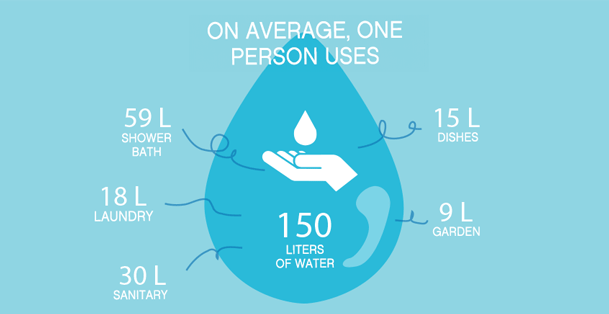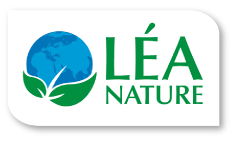HOW TO COMBAT WATER POLLUTION?
15 March 2022
Did you know that 9 out of 10 rivers are polluted by pesticides1, and that 73.3% of the pesticides most commonly measured in surface water are suspected endocrine disruptors2?
Fighting freshwater pollution is of paramount importance to ensure continued access to this vital resource, for the environment and for our health.
What type of pollution are we talking about? And what can we do to preserve this source of life? Here are some solutions.
THE MAIN CHEMICAL POLLUTANTS IN WATER?
PHOSPHATES
Phosphates have been used widely in household textile detergents and dishwashing products. Since 2013 and 2017, their use in these everyday products has been limited.
NITRATES
Nitrates are derived from agricultural fertilizers. They are highly soluble in water and a major cause of pollution.
The nitrates in the water we ingest are classified by the IARC 3 as being “probable carcinogens” for humans (Group 2A), as are nitrites (the products of their metabolism).
PESTICIDES
Phytosanitary products (pesticides, fungicides and herbicides) can contain molecules suspected of having an endocrine-disrupting effect.
Wastewater treatment plants have difficulty processing these micropollutants and they are not eliminated naturally, so they end up in our tap water.
What is an endocrine disruptor?
Endocrine disruptors are substances suspected of being toxic, for example bisphenol A, phthalates, parabens and pesticides.
They disrupt the hormonal and nervous systems (Source: ANSES). Exposure to these substances increases risks of disease and cancer.
IN WATER : GLYPHOSATE AND ATRAZINE
Glyphosate and atrazine are 2 of the most common pesticides.
Glyphosate is the active ingredient in Monsanto’s Roundup®. It is the most widely used herbicide in Europe and has been classified as a “probable carcinogen” by the International Agency for Research on Cancer. Despite this, the European Commission reauthorized its use in June 2016. It is the pesticide most commonly found in French rivers.
Atrazine has been banned in France since 2003. Yet it is still the most polluting molecule in groundwater and tap water, demonstrating its persistence over many years.
These pollutants stem from agricultural activities, which must reduce or even eliminate these substances from its practices.
What about us? What can we do? These 10 best practices will help clean up our wastewater.
10 EVERYDAY WAYS TO SAVE
Did you know that one person uses an average of 150 liters of water every day? 59 liters for showering and baths, 18 liters for laundry, 15 liters for washing dishes, 30 liters for sanitary facilities and 9 liters for the garden?
AT HOME
1 – Choose natural or certified organic cleaning products, and don’t overuse them!
2 – Don’t flush cotton swabs or wipes down the toilet, they prevent water treatment plants from functioning properly. Put them in the trash!
3 – Take any medicines you no longer use to the pharmacy. If you throw them down the sink, they could end up in wastewater.
4 – Choose shower gels and shampoos containing no substances suspected of being harmful to the environment, as they too end up in wastewater.
5 – Dispose of any toxic products (solvents, paint, etc.) at a waste disposal center, as even small quantities can have irreversible effects on ecosystems.

IN THE YARD
6 – Don’t use products like weedkillers, pesticides and insecticides, as they pollute runoff water and the natural environment. Opt for natural products and weed your garden manually.
7 – Wash your car at a car wash rather than in your garden.
IN THE BEACH
8 – Throw your litter (cigarette butts, chewing gum, cans, bottles, tubes of sunscreen, etc.) in the trash.
9 – Pick up after your pets and dispose of excrement in a trash can (pet excrement also pollutes the natural environment).
10 – Dispose of wastewater in the drainage areas provided in parking areas for boats and motor homes.
1 France Nature Environnement – 2 Générations Futures – 3 Cancer Environnement

